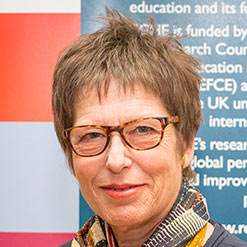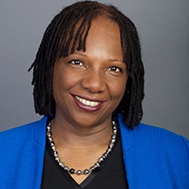Dismantling the Colonial University: Defiant Scholarship & Decolonial Thought in Africa
- CHAIR: Claire Callender, UCL Institute of Education and Birkbeck
- Amber Murrey, University of Oxford
- Patricia Daley, University of Oxford
Event Materials
This event is now archived and we are pleased to provide the following event media and assets, along with the original event overview.
Important work has critiqued the ‘epistemic violence’ of imposing Eurocentric systems of knowledge in Africa, including the ‘thing-ification’ of Africans in dominant scholarship and the racism embedded within colonial cartographic dissections of the continent. Yet, colonial epistemes persist in contemporary studies of African geographies. Colonial persistence is revealed in the erasures of the functions of race in African societies, the marginalisation of Africa within human geography (particularly beyond Southern Africa), and the disunities in distinctions between black and African geographies. In this lecture, we introduce the concept of ‘defiant scholarship’, a form of scholarship that seeks to work against and outside of dominant grammars and prevailing registers. Drawing from Water Mignolo’s ‘epistemic disobedience’, defiant scholarship cultivates those ways of thinking and those practices of thinking that are external to, in opposition to, and/or unconventional to the coloniality of knowledge. Refusing to seek legitimation by colonial epistemologies, defiance can be a tool to dismantle coloniality in Africa geographies. In the spirit of Francis Nyamnjoh’s ‘case for conviviality’, we ask what does it mean for our scholarship to be decolonial and ‘disobedient’ to colonial and capitalist epistemes, and, in so doing, sketch the contours of anti-racist defiant African geographies.
——
This is the third webinar in CGHE’s special series, Racism and Coloniality in Global Higher Education. You can find out more about the full series here.
This CGHE webinar series explores what global racial equity would mean for the future of higher education, and addresses the challenges of decolonising research systems and pedagogic cultures. The aim is to promote knowledge of, and commitment to, anti-racism within universities, and amongst researchers and policymakers. Contributors will reflect on colonial institutional legacies, racialised institutional cultures, and the power of ‘whiteness’, drawing on empirical research in a range of higher education contexts. Questions to address include:
- Why are the legacies of colonialism often overlooked, or erased, in favour of a ‘colour blind’ analysis of global higher education’s hierarchies and inequalities?
- Is the institutional racism of today’s universities a historical legacy or a resurgent cultural dynamic, intersected by the geopolitics of internationalisation.
- What can we learn about the structural inequalities of the global knowledge system from critical geographers and scholars in Science and Technology Studies?
- What forms of profound and transformational change would be needed to create racial equity in global higher education and research?
- How are universities, faculties and students, addressing these colonial legacies? Can owning ‘whiteness’ and acknowledging white privilege – along with the JEDI agenda (justice, equality, diversity and inclusion) – help move these debates forward?
CGHE webinars are fully open to participants. They are interactive, enabling attendees to speak directly in the webinar, ask questions of speakers when called in by the chair and see all other participants. At any time you can communicate directly with others, either all together or on a one-to-one basis, through the webinar Chat.
Event Materials
This event is now archived and we are pleased to provide the following event media and assets, along with the original event overview.




